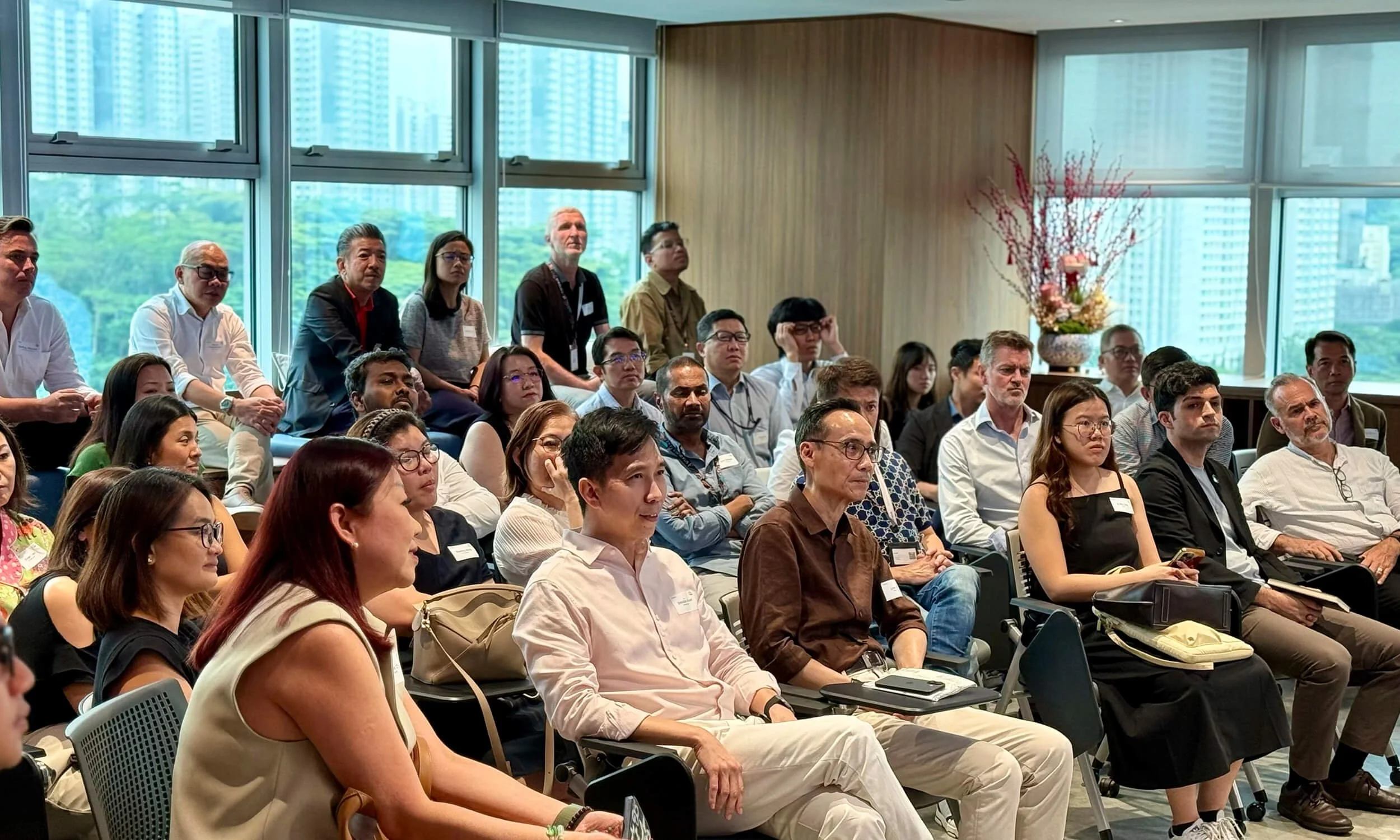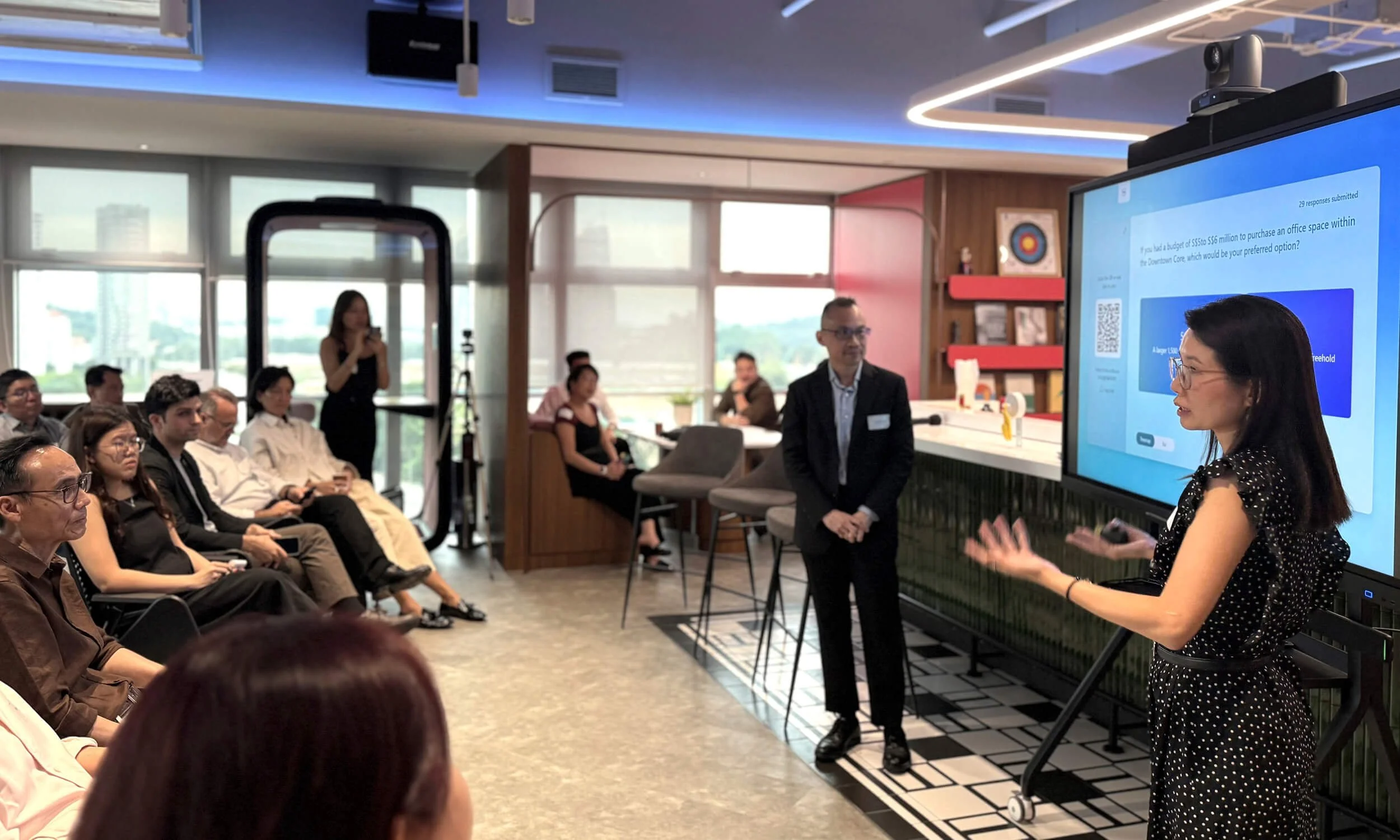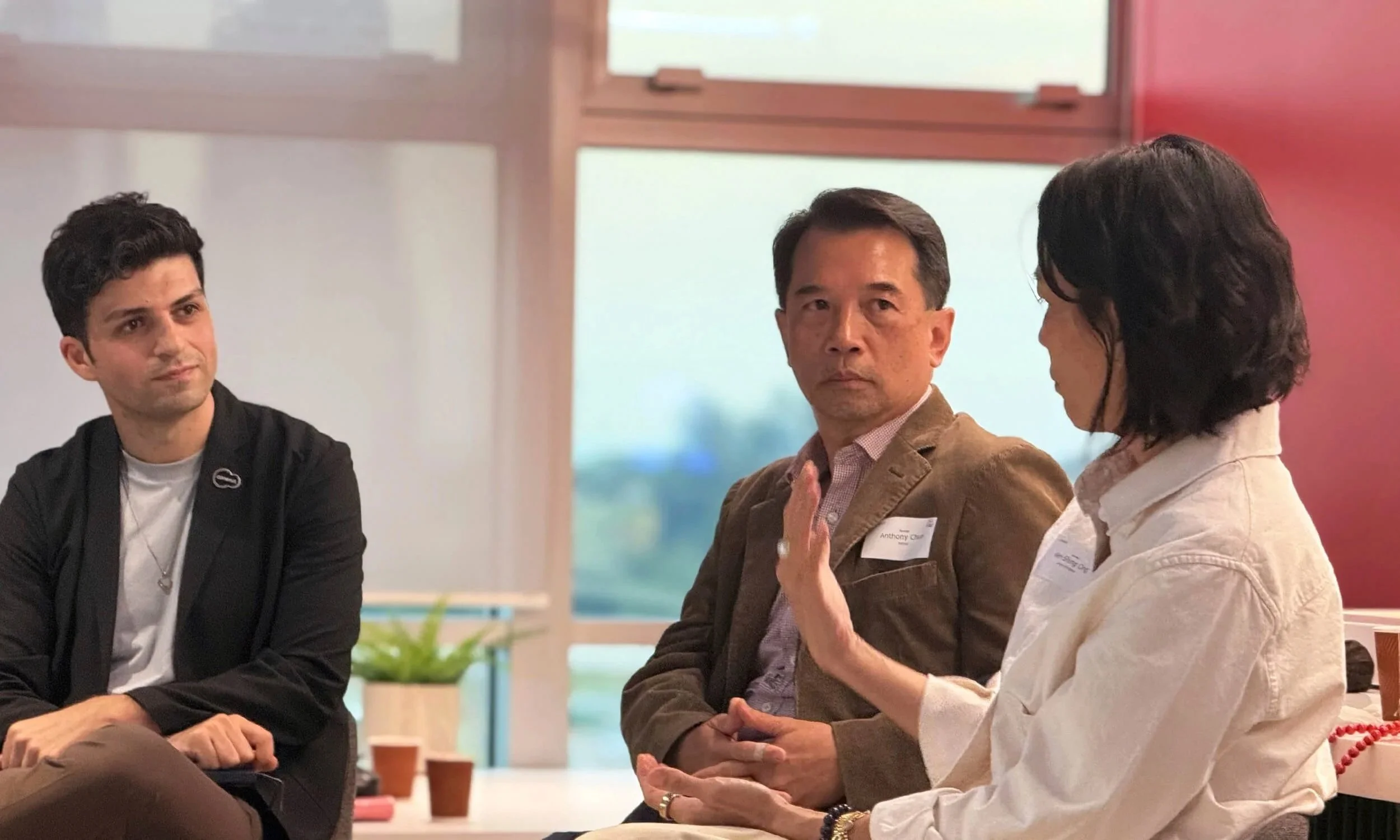From Hybrid Work to Net Desirable Space
Have you ever thought about how the spaces you live and work in shape your mood, creativity, and sense of purpose? Research shows that people who feel connected to their surroundings are measurably happier and more productive.
On 5 November 2025, Conexus Studio and Knight Frank Singapore brought this insight to life at our 5th Desk Dialogues: ‘The Connected Life: Work, Play, and the Spaces Between,’ exploring how evolving lifestyles are redefining the future of design and real estate.
From Data to Dialogue
The evening began with an engaging presentation by Alice Tan, Head of Consultancy, and Leonard Tay, Head of Research at Knight Frank Singapore, who shared insights from the Quality of Life Report, a nationwide study released in July 2025 that surveyed 1,000 working professionals across Singapore. Conducted in partnership with Ipsos, the report examined how expectations of living, working, and leisure have evolved, and how these shifts are reshaping the built environment.
The findings revealed that while almost 60% of respondents are satisfied with their living conditions, fewer than 50% expressed satisfaction with their current jobs and opportunities for play and recreation. This imbalance suggests that as cities become more efficient, they must also become more liveable, with developers, planners, and designers rethinking how everyday environments can better support well-being, connection, and rest.
What, then, makes the modern office worth returning to?
Hybrid work remains the favourite, especially for younger professionals craving autonomy and balance. Senior staff, however, lean towards the office, drawn by structure and collaboration, showing that one size no longer fits all.
Across generations, what really matters are the basics: ergonomic comfort, natural light, ventilation, and spaces that just feel right. Even small touches like healthy snacks or inviting breakout corners can encourage people to show up and engage.
Surprisingly, communal areas and after-hours events barely register. Employees are choosing balance and autonomy over social obligation. For designers and employers, the message is clear: the future workplace should enable choice and well-being, not just fill a space with amenities.
Rethinking ‘Play’ and the Meaning of Time
The report also looked at how Singapore’s residents spend their leisure hours. While eating out and travel remain popular, parks and green spaces are emerging as unexpected favourites. This shift toward nature, from weekend walks to urban greenery, signals a move toward well-being-driven leisure rather than nightlife or entertainment.
As Leonard noted, ‘Time has become the new luxury.’ Where the ‘Five Cs’ once defined aspiration, residents now prioritise time, health, and emotional peace. For urban planners and designers, this means creating spaces that support these values, from accessible greenery to thoughtfully designed public areas that enhance everyday well-being.
From Net Lettable to Net Desirable
Moderated by Roohid Novinrooz, Director of Client Strategy at Conexus Studio, the panel discussion featured Anthony Chua, CEO of the Real Estate Developers’ Association of Singapore (REDAS), and Ong Ker-Shing, Founder of Lekker Architects and academic, reflecting on how behavioural shifts are reshaping real estate and design.
Both panellists highlighted a key transition in development priorities: moving from maximising net lettable area to creating net desirable space. Developers are increasingly recognising that human-centric design, social connectivity, and mental well-being are not just ideals but measurable drivers of long-term asset value and tenant retention.
Anthony added that developers are evolving in parallel. “It’s no longer enough to build a structure and fill it up. You need the right operator, the right social platform, and spaces that foster genuine connection. Thoughtful integration of parks, gardens, and shared amenities can spark organic interaction and a real sense of belonging, making developments socially vibrant as well as functional.”
Designing for People, Not Just Spaces
Ker-Shing stressed the role of empathy in design, noting that engaging directly with end-users, from luxury resort guests to hospice residents, reveals how environments shape emotion and behaviour. “Architecture is no longer just about form,” she said. “It’s about how people inhabit and grow into spaces. Integrating green areas, accessible communal zones, and inclusive features ensures everyone, regardless of age or ability, can benefit from and contribute to the community within a space.”
Taken together, the insights point towards an industry recalibration — one where human experience becomes the anchor of real estate strategy. Projects that champion well-being, inclusivity, and community value are poised to outperform, not only commercially but also in their contribution to a more socially cohesive city.
Towards a More Liveable City
At a broader level, the conversations highlighted a national imperative: Singapore’s next chapter of urban development must prioritise people at every scale. Livability today hinges on balance, convenience, and well-being — elements that shorten the daily grind, foster healthier environments, and create neighbourhoods where community can genuinely take root.
As Alice summarised, “Real estate has to shift towards people — towards what they’re experiencing now.” For architects, developers, and planners alike, this means designing spaces that don’t just accommodate work and play, but elevate life itself. Insights from the Quality of Life Report provide a data-driven foundation for these decisions, highlighting the evolving priorities and expectations of Singapore residents.
Sparking Ideas and Inspiration
Following the presentation, guests connected over refreshments, exploring how thoughtful, human-centred design can enhance well-being, foster purpose, and create more meaningful daily experiences. Discussions highlighted the crucial role landlords, developers, and property managers play in shaping environments that inspire, connect, and truly support the people who use them.
Join us for our next Desk Dialogues session as we continue shaping the future of work, play, and the spaces in between.

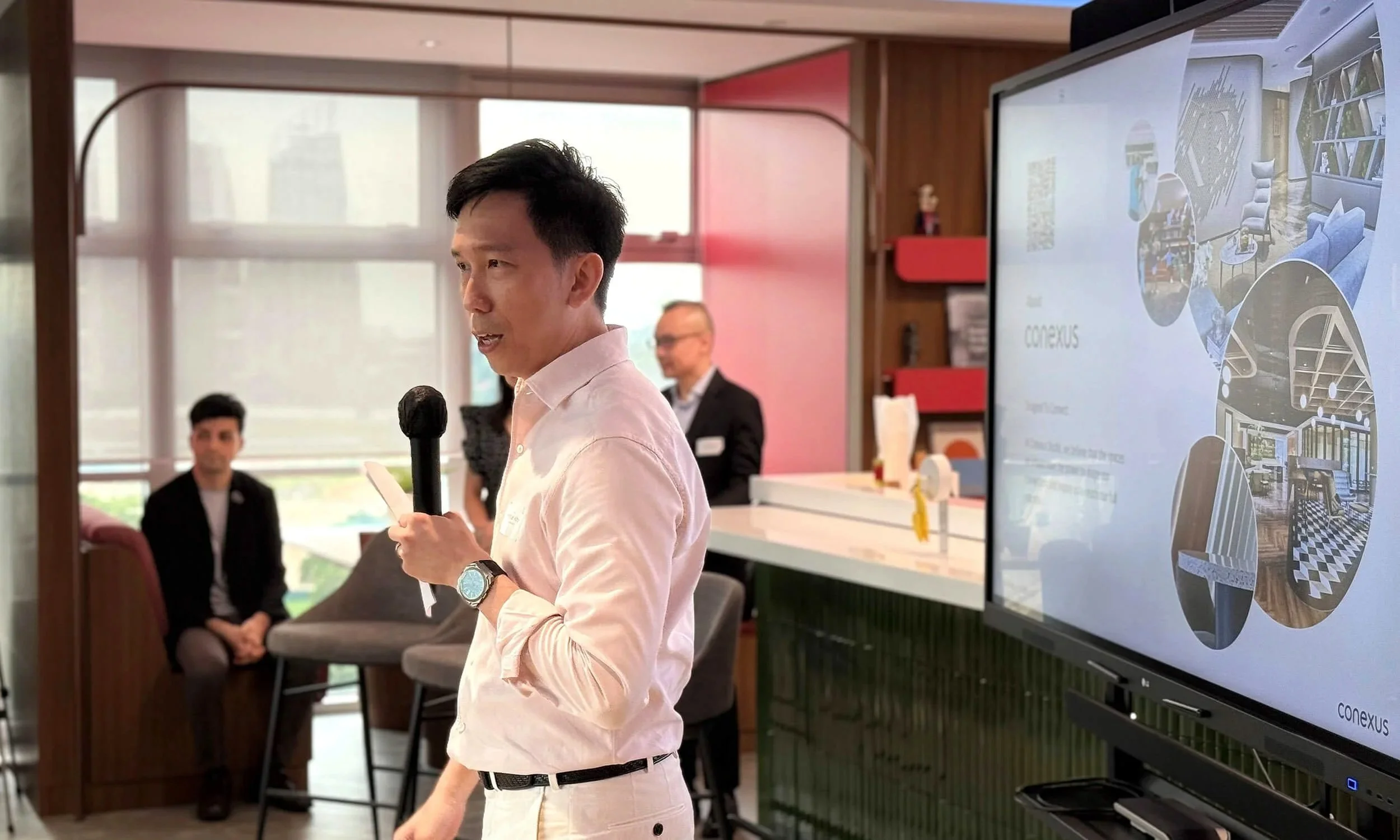

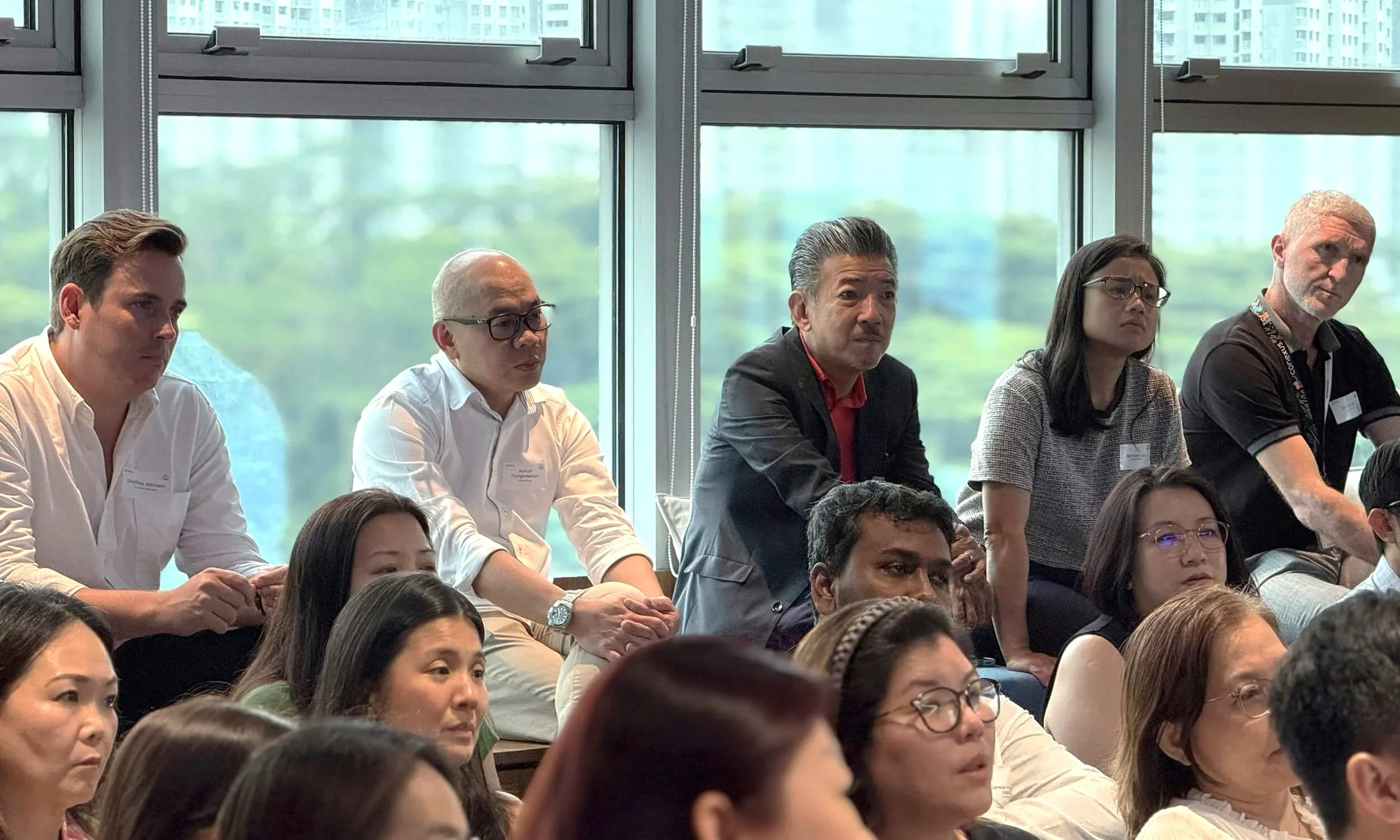
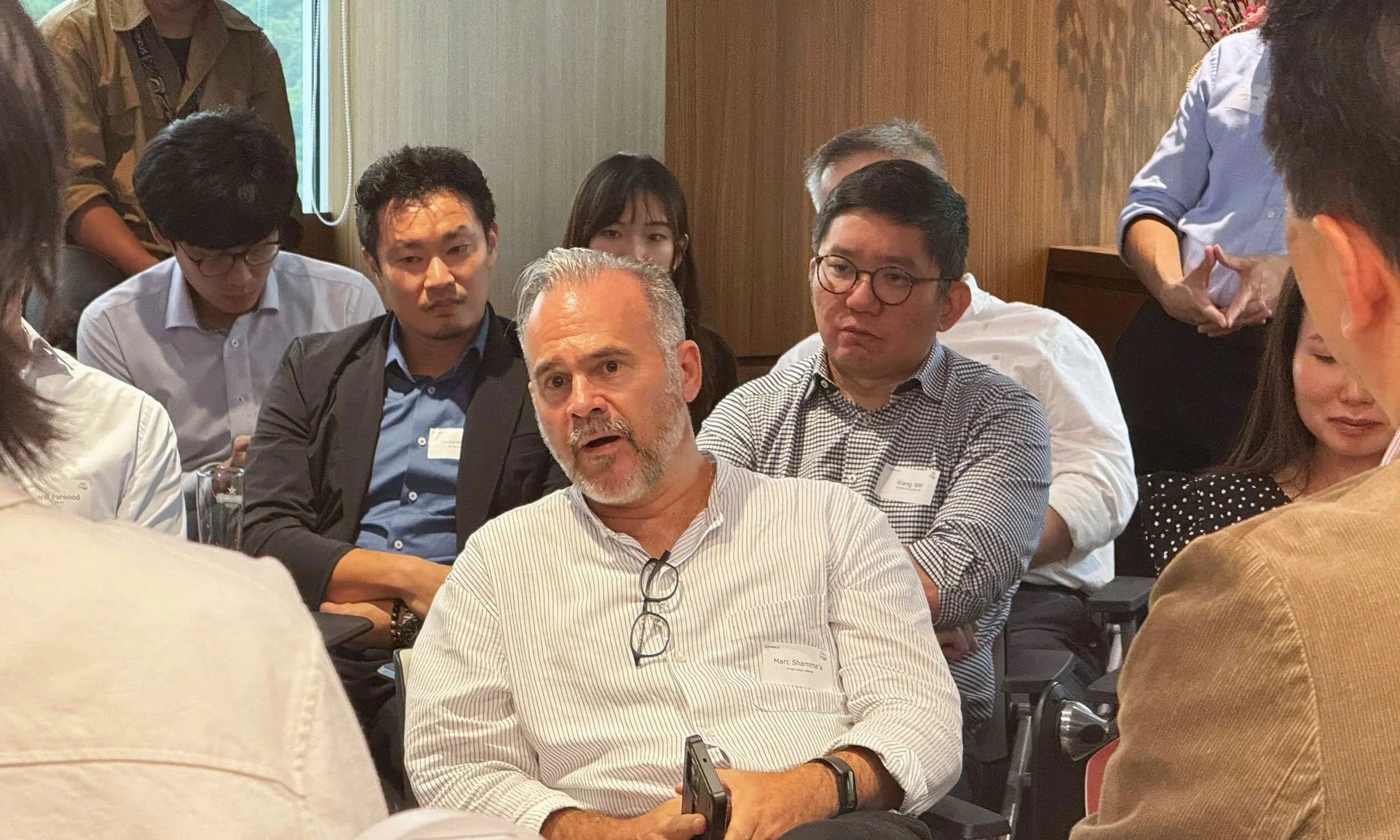













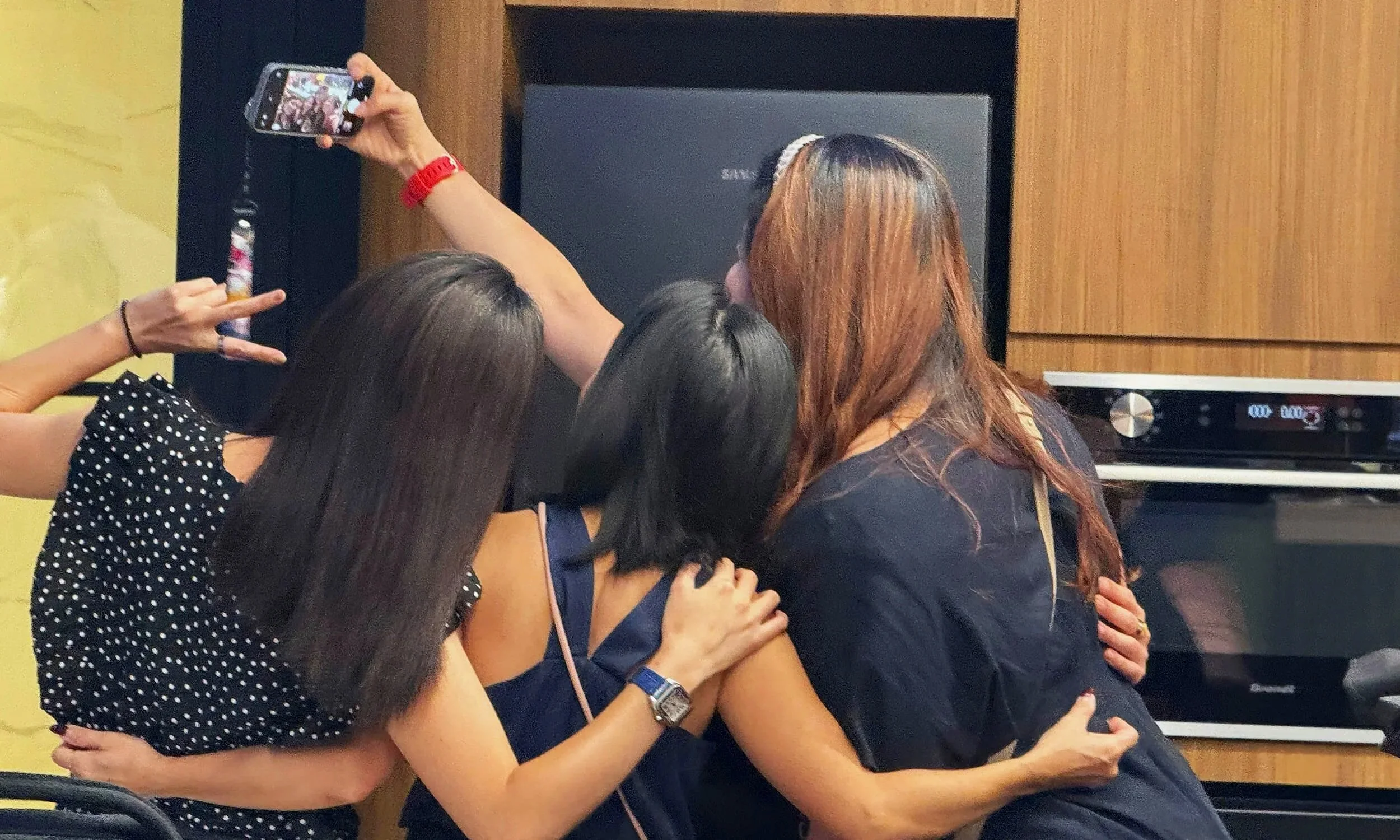

► Keen to speak at our future sessions and connect with our community? Drop us a message at marketing@conexus.sg!
► Stay updated on our latest happenings and events by connecting with us on social media (LinkedIn|Facebook|Instagram)
►Talk to Conexus Studio about translating these insights into net desirable spaces — and explore how we can collaborate on your office design.

